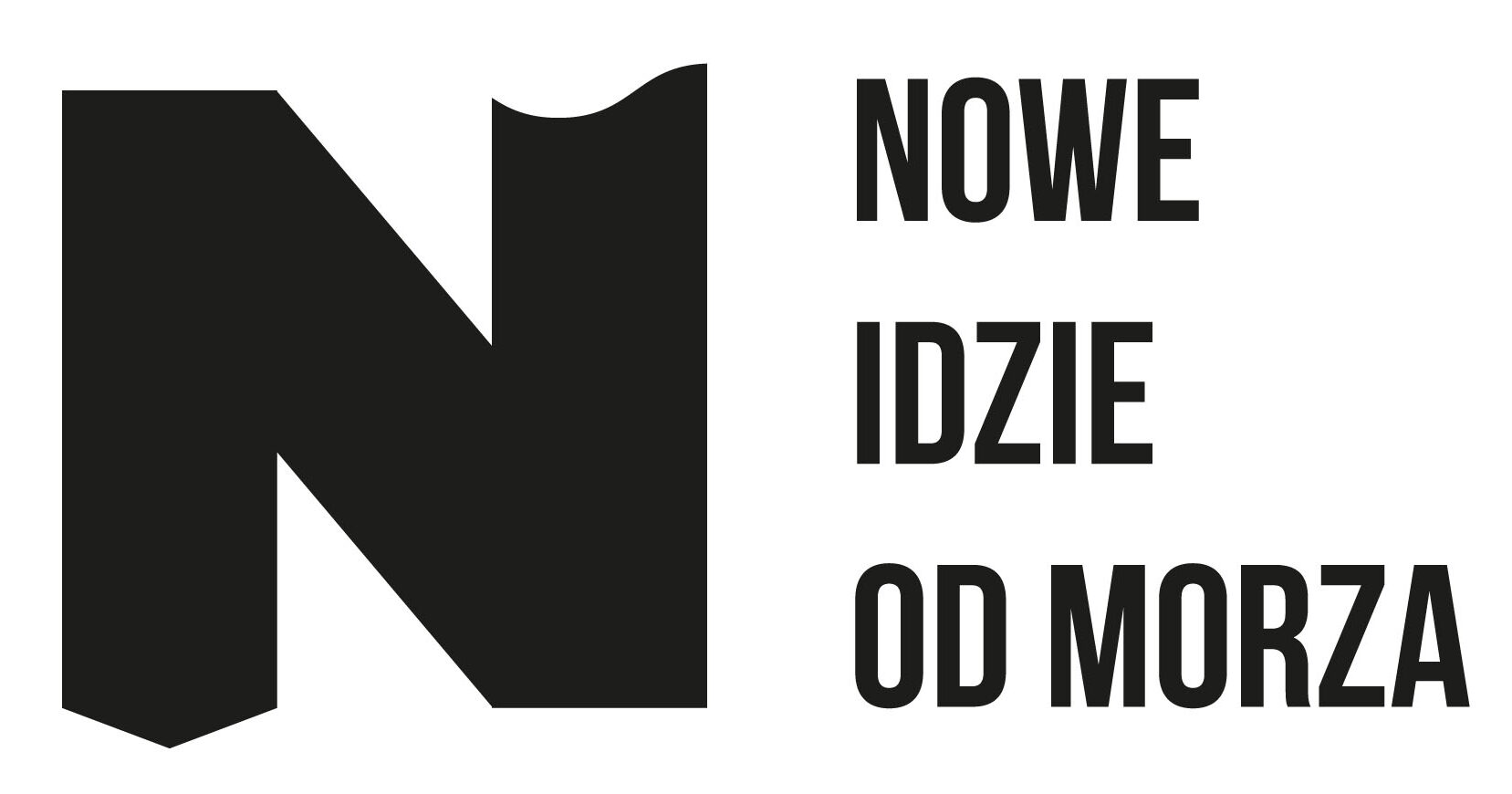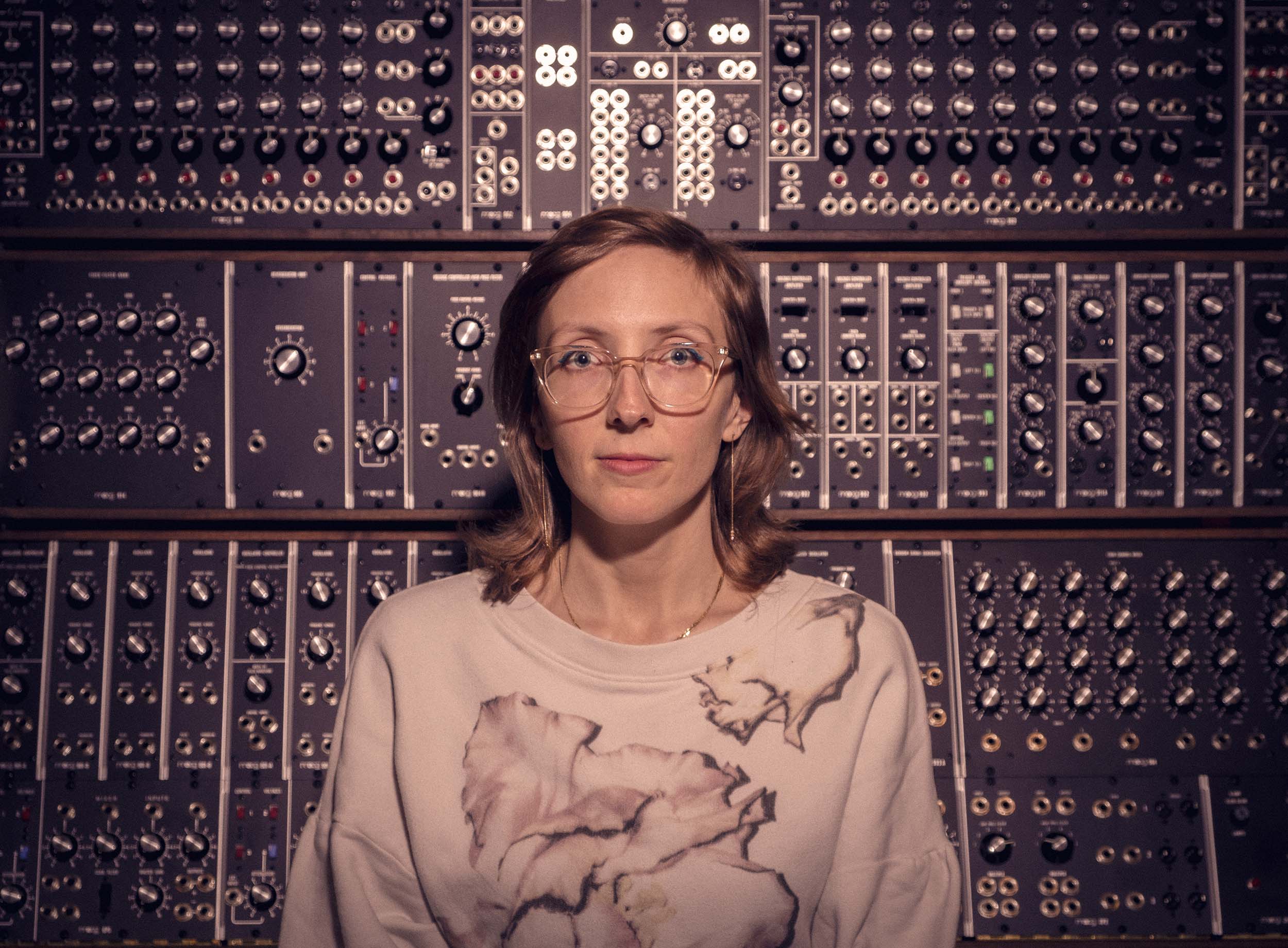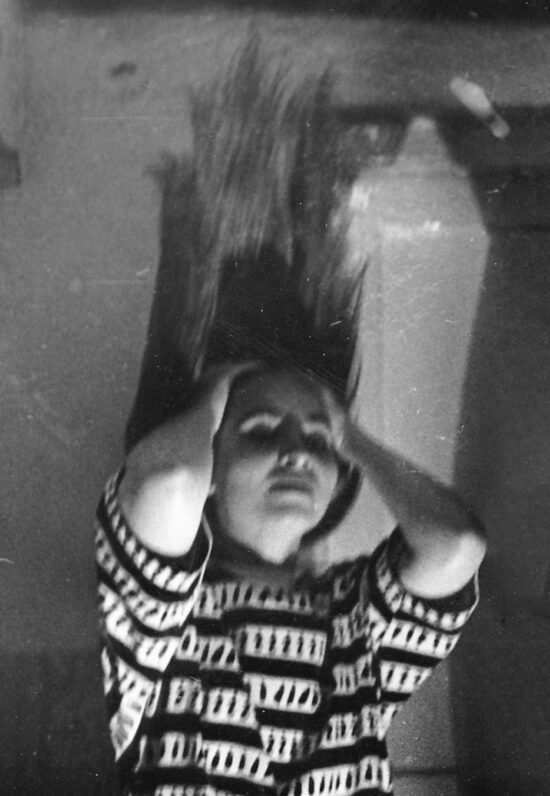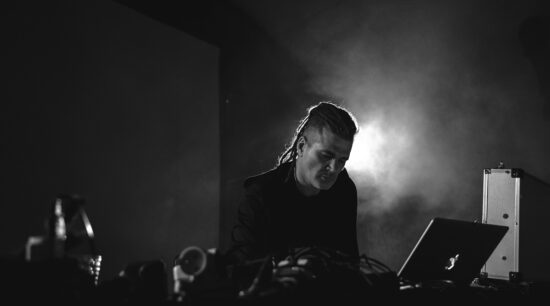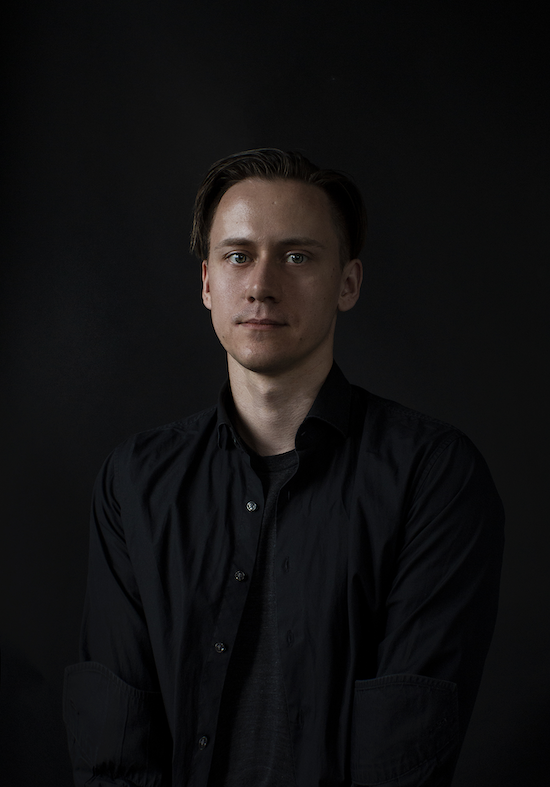– The more time passed, the more women I would meet and play with. And these days it’s not uncommon for me to play in bands where women outnumber men. The more women doing it, the more younger girls starting out, having someone to look up to and feeling less of a boys’ club – says composer and guitarist, Mary Halvorson.
Translation: Aleksandra Szkudłapska / Photo: James Wang
I can’t remember which album marked the beginning of my adventure with Mary Halvorson’s music, but I do remember her concerts in my native Gdańsk at the Jazz Jantar Festival. First with Marc Ribot & The Young Philadelphians in 2015, where Mary played an important, but supporting role. A year later she came with her solo material, after the release of Meltframe. She gave me a copy of Away with You – the latest album she made with her octet, and we began to think that it would only be a matter of time before she came to Poland with this group. That happened in 2018 – the concert with eight people on the stage was simply brilliant. Mary was also supposed to come here in March 2020, but more on that in a while…
The catalogue of her achievements is pretty thick: from albums with Jessica Pavone, through the Thumbscrew trio, up to the ensembles led by her teacher Anthony Braxton. And this is just the tip of the iceberg – Halvorson is a versatile artist, open to many musical traditions and aesthetics. Just the last few months brought albums like New American Songbook recorded with Ron Miles and Greg Saunier, A Tangle of Stars with John Dieterich, the new Thumbscrew release with Braxton’s pieces as well as her presence on the albums by Susan Alcorn Quintet and Nate Wooley’s quartet. But the main reason we got together to talk is Artlessly Falling, her second album recorded with Code Girl. The first one was released in May 2018 by Firehouse 12 Records: a great compositional tour de force, very unusual because of Halvorson’s collaboration with the sensational singer Amirtha Kidambi, also known from the Elder Ones, and with Lea Bertucci, who significantly broadens the perspective of contemporary vocalism and improvisation (and with whom I spoke last year). After two years, Code Girl returns in a new incarnation – with the saxophonist Maria Grand and trumpeter Adam O’Farrill alongside the rhythm section of Thumbscrew (Michael Formanek and Tomas Fujiwara).
March 2020 was when they were supposed to visit Gdańsk, but the outbreak of the pandemic put a stop to these plans. Artlessly Falling is a much more harmonious album, it was recorded by a line-up of musicians who know each other really well, but Mary also proved she can be even better at composing to lyrics. Kidambi shines with different timbres of her voice, sometimes supported by Grand. There is also Robert Wyatt, who appears in three songs, giving the quintet’s compositions a completely different character.
Just before the album’s premiere I talked to Mary about her way of composing and writing lyrics, her path as a guitarist, but also the important figures she met along the way, such as Anthony Braxton. We also touched upon the traditions of American and guitar music, including the pedal steel guitar used by Susan Alcorn, with whom Halvorson has just made a record.
JAKUB KNERA: You’re involved in many bands – as leader or bandmember. What impact has the pandemic had on this? It seems that you’ve finally had some time to yourself.
MARY HALVORSON: It’s funny, because I was actually craving for a period of time when I would be able to stay at home and just practice the guitar and compose. But certainly, I didn’t want it to happen like this. The year has been so crazy that it’s a lot harder to focus now. As much as I can, I’m trying to take advantage of the time – I’ve been practicing a lot of guitar, writing a lot of music, trying to make the most of it. It’s nice – aside of all the insanity of the world – to have a little bit of time just to take a breath, because I hadn’t had that in many years.
At home you play on your own, but you’re currently performing with many bands with huge line-ups. What do you find attractive about it?
I really like the orchestrational possibilities, I like writing for bigger bands – it’s just having a wider palette of sounds you can choose from. For the first ten years of my career, I was writing for a lot of small groups – duos or trios – and I think that at a certain point I got excited about adding people, thinking what can happen just colour-wise, palette-wise if I can have more options. I think of musicians when I see they sound great in some group, and I’m adding people. So I guess it’s true my projects have become bigger as I go along, but it does make things more complicated sometimes. It’s not as easy to get eight people together to play and do a tour as it is to get two or three people.
In 2016 you came to Gdańsk to play a solo show at Jazz Jantar. You had just released Away with Youwith your octet, I asked whether you had any plans to tour with this group, and you mentioned that you were already thinking about it. Making arrangements and recording an album doesn’t necessarily involve touring it – has it come naturally?
I feel like the bigger the group, the lower the expectations are in terms of being able to have multiple performances. With the octet I feel I really got lucky – I thought I would do a couple of gigs around New York, maybe one or two out of town, but we ended up being able to do that whole tour in Europe. I wasn’t expecting to be able to take the octet on the road. It’s not as practical, but I was thankful for that opportunity – it was amazing to bring this group on the road.
It’s something that has been very gradually shifting throughout all my lifetime. When I was a teenager studying jazz guitar, I had never met another woman playing this instrument. When I was starting out, it was very unusual – that could have been hard, but luckily I had really great male teachers as role models, who encouraged me and were super cool. It would have been nice to have more women around, but in a weird way I just got used to what it was. As I got a little bit older, I started to meet all these women playing music that I just didn’t know about because I hadn’t encountered them when I was a teenager. All of a sudden I started playing with women – all of a sudden I wasn’t the only woman in the band! I just feel this momentum shift: the more time passed, the more women I would meet and play with. And these days it’s not uncommon for me to play in bands where women outnumber men.
That’s really nice – there’s a feeling that it’s way more inclusive and diverse than it was back when I started. It’s also shifting in the student groups – now when I’m a teacher, I see more female students. But it’s still not fifty-fifty – most of my students are still men. It’s not quite there, but there’s been a lot of progress. The more women doing it, the more younger girls starting out, having someone to look up to and feeling less of a boys’ club.
Do you remember how you started playing the guitar?
I played the violin first, all my friends did so – that wasn’t a male dominated thing (laughs). Somebody came to my elementary school with an acoustic guitar and we learned a couple of chords. I remember thinking “I like that, that’s cool”. That was my first memory of actually holding a guitar. My aunt had an acoustic guitar that was in my mother’s house for some reason, so I started to play that a little. Then I discovered Jimi Hendrix and I wanted to play electric guitar. But nobody ever said to me “you can’t do this because you’re a girl”. I was lucky to have really supportive and inclusive friends and teachers. I definitely had the experience with the people I didn’t know. I can remember being at a jazz camp – there were six guitar players learning jazz chords and I was the only girl. I was fifteen and the teacher was showing us C7 chords, he came to me – he has never heard any of us playing – saying “This is C7 chord, Mary” and “Can you play C7” (in a condescending voice). If it happened now, I would say “fuck you!”, but at that time I was totally shy that I could barely play and I had no confidence. Now I can laugh about it but situations like that are the kind of things that are hard and deter people from continuing.
It’s the same as with The Queen’s Gambit, a story about a girl playing chess. At the beginning she’s also the only one and the boys’ reaction is exactly as you said – until she starts winning with them. But you mentioned Jimi Hendrix – what kind of guitar music interested you in those teenage years?
First Hendrix, then The Beatles, when I was 12, I was into grunge with Nirvana, Smashing Pumpkins and bands like that. I was really into The Allman Brothers Band too. A lot of it was more rock-leaning stuff. When I discovered jazz, I was really into Wes Montgomery – that was probably the first jazz guitarist that I got into when I was in high school. Somehow, I got to Derek Bailey pretty quickly. More traditional jazz guitar is something I came round to later. In the beginning it was more rock’n’roll and folk music, although I love Jim Hall, who I also discovered pretty early.
I guess I mean more the bebop genre of guitarists. When I was learning jazz, those would be the types of guitar players that I would be studying or learning about. The first jazz I was into – aside from Wes Montgomery – almost never involved guitars and maybe that’s why I didn’t get that much into guitarists playing in the jazz tradition. I was more into Thelonious Monk, John Coltrane, Ornette Coleman or Miles Davis.
Music school is the place where you are usually faced with traditional education, unless a figure like Anthony Braxton appears on your way…
When I played the guitar in high school, I never thought I would become a musician – for me it was just a hobby. Everything changed when I went to Wesleyan University in Connecticut where Anthony was teaching. I planned to study biology, but I signed up for his class and that changed everything: it was so interesting that I practically failed every other class after the first semester. He had energy and he was infecting others with his passion, so in the next semester I signed up for all his classes.
What did they look like?
They were very diverse: sometimes we played his music, sometimes they had their leitmotifs, such as the work of Sun Ra or Stockhausen or a seminar on small or large ensembles. I really liked History of the Jazz Saxophone: we went to the music store, bought a pile of records with a saxophone on, we listened to every one of them, and he told us about them. He had a huge impact on me – before I did not think that I would be serious about music. Thanks to him, I discovered AACM, Art Ensemble of Chicago, I listened to Paul Desmon or Stockhausen – from him I knew much more than through the traditional exploration of jazz music.
Has he influenced you as a guitarist?
It was hugely important for me just to have somebody open up my musical world like that and saying “you don’t have to limit yourself to anything, you can draw on musical traditions from all over the world, experiment, do whatever you want, you don’t have to follow the rules.” He encouraged me to try new things and make mistakes. It seems obvious to me now, but it wasn’t obvious at the time – so I think I really needed that: somebody who would give me confidence, saying “try something, don’t worry if it sounds stupid, just try”. That was huge. Having his music as a model – looking at what he did and the scope of work that he’s accomplished. He’s done so much – it’s almost impossible where to start.
Joe Morris was important for you too. Why?
I took guitar lessons with him because I loved him playing. I remember seeing him live with William Parker at a show in New York when I was in college. I went up and asked if he taught lessons – I just wanted to play like Joe! But his whole thing was “I’m not even gonna play the guitar during lessons with you, cause I want you to find your thing”. His lessons were to help me develop a voice – a very strong one, because you always want to imitate your teachers! He was telling me not to do that, which seems obvious now, but at the time it was a very strong point.
How important was technique to you?
In addition to studying at Wesleyan, I went to jazz school for a year to play the guitar better. At Wesleyan, we’ve experimented, but we haven’t practiced the technique that’s important – you develop the tools, the ear, and the acumen of the theory. First, I learned an experimental approach and tried everything, then practiced all the scales for eight hours a day. I carried it home where I was able to spend several weeks playing one chord. And then another, then move between the two. At school, we had to assimilate a lot of information, learn a lot, remember many things. At home, I could focus on what I consciously chose. I started to narrow down my interests, which is very important.
Later you played Braxton’s music. With Thumbscrew you’ve just released The Anthony Braxton Project. It was the first time when you played his music without him!
It’s so cool because the scope of what he does is wide and he’s so prolific. When it came time for his 75thbirthday, The Tri-Centric Foundation approached us and asked if we wanted to play some of his music. They have his archives, because he writes so much and so many of these compositions have never been played or recorded. We actually went through this – they all have numbers, he writes notes, it’s very clear so you can see when he wrote them, read his notes and know what he was thinking about conceptually. We went through these pieces and we chose them – almost all were early pieces that were never recorded. That was very cool for me – most of the music which I played in his bands was later music, like Ghost Trance. So, to go back and play the early pieces and interpret them made me very excited. Playing this without him being there was interesting too – it was up to us to decide how we would try to do this in a way that stays true to his intention.
This idea came from Nate Wooley – it’s expanding the notion of the American Songbook. It shouldn’t be limited to a certain genre, showtunes or standards, but expanded to be any kind of American music. The idea was for each of us to choose a few pieces which we would then interpret as part of the American Songbook. It was a lot of fun – I’m a huge fan of Fiona Apple and that’s American music, something really important for me. To do a cover of one of her songs was exciting as well as seeing that both me and Ron chose Elliot Smith. On the other side there is Gary Peacock’s composition and Greg chose music from Return of the Jedi. We created our own tradition.
Greg plays in Deerhoof with John Dieterich, with whom you recorded A Tangle of Stars last year as a result of your show at Wels festival. Again we’re coming back to the topic of guitar music traditions, in an entirely different incarnation. What does this tradition mean to you? You and John are from different music worlds.
I don’t like it when everything fits into one category – I’m very interested in working with people who function in different music worlds. I’m a Deerhoof fanatic, so for me to get a chance to work with both Greg and John separately was really exciting. We are mutual friends with John – he’s somebody whose guitar playing I’ve always really admired. The Wels festival, which I was curating, wanted me to do something new or something I haven’t done before, so I thought I’d ask him if we could do a collaboration. We ended up enjoying it a lot and decided to make a record.
I guess I would say that this is my main working band. We’ve just released the Braxton record, which is our fifth record, and we’re releasing another one, Never Is Enough, in early February 2021. It’s a collective trio and we all write music – nobody has to take responsibility for being a band leader, we’re all very invested in the group. It’s also easier as it’s just a trio compared to the ensembles we’ve been talking about earlier. We are all putting efforts towards composing, making gigs happen. I think it does end up being one of the things I do most – I love playing with those guys and it’s nice to keep some momentum going with the same group. As you develop something, the music can go to a lot of new places when you have that kind of trust with somebody.
You mentioned that you like to add new people to have larger bands. Can you say that in some way the Code Girl project is Thumbscrew XXL?
I would almost phrase it more like I stole Thumbscrew! (laughs) My concept for Code Girl was to have a band with a singer. When I was trying to think of a rhythm section, I just heard Thumbscrew in my head. I really just stole them for that project.
Besides them, the band currently includes Maria Grand, Adam O’Farrill and Amirtha Kidambi. Tell me where this idea for a singer came from. Amirtha Kidambi told me a year ago that you saw her with Charlie Looker in Seven Teares. Another aspect is the band People with Kevin Shea in which you sang songs. How did the idea of singing, writing songs and wanting to have a singer all meet?
I don’t consider myself a singer and I’m not good at it. When I had the band People, I was really into this idea of an unpolished singer, and I still have it in mind – someone that isn’t trained, who is raw, that was the kind of aesthetics that we were going for. It made sense for me to sing in that context and I really enjoyed it. But I don’t feel like I want to be singing anymore – I really want to have a band with a singer, though, and I thought it would be cool to write music for somebody else. In this case it is Amirtha Kidambi. I know how limited my singing was, but when I saw what she would do with her voice and how she transformed what I wrote into something much better, I thought “OK, I finally have a real singer” (laughs). I love music with lyrics and songs – when I’m writing it, I’m singing it to myself just to make sure it sounds intuitive for the voice. But she is bringing them to the next level.
I wrote poems in college and when I had the band People, most of the lyrics were by Kevin Shea. I was experimenting with it a little bit and then in my duo with Jessica Pavone sometimes we would sing a little. It was something I’ve done just to experiment casually over the years. I’ve always liked working with words, always liked to name songs – I have a database of titles over several pages. With Code Girl it was like a mad step further – I wanted to put some more serious study and thought into it and try to have a band where I’m writing lyrics for all the music.
I really liked your first album, recorded with a slightly different line-up. Now you had an even more precise idea?
This time I knew what the band sounded like. With the first album, everything was very new, more experimental, because I didn’t know what was going to happen. We played two shows, a few rehearsals and recorded it. The advantage of Artlessly Falling is that I know better what I’m doing, I know this music really well. We played the entire tour with music from the second album. I also changed the line-up – I wanted two horns and three voices, more sound possibilities on the album. But most of all, I wanted to know the songs inside out before entering the studio.
You also wanted Robert Wyatt to play on the record.
He’s one of my heroes and I love his music – I probably listened to it as much as I’ve never listened to anybody’s music. I’ve been in touch with him occasionally over the years and I knew that I wanted to have a male singer. He was my first choice, but I thought there’s no way he’s gonna do it. I wrote an email and he wrote back “I’d love to”. I was shocked!
I wrote these songs for him, sent the lyrics to see if he felt comfortable singing these words, and a draft of the music. I know it’s clichéd, but for me it was a “dream come true” thing and something I never thought would happen.
Do you think differently about composing when you have words? Do words come first?
Yes. I think having the words makes writing the music easier. You’re looking at them if you have a regular form, regular number of stanzas or beats or a line – that makes you write the music in a structure that matches. Words give you structure about how to write music, but also what the mood is, because you know what the lyrics are about. I like the process of having words and decoding them, turning them into a song. The hardest part was writing the text. I’m not used to it, I just correct, try different things, and create multiple drafts. But when I’m done with the lyrics, music comes very easily.
Working with Susan on her project was amazing – she is a totally unique artist and I felt that I had the opportunity to enter her head (laughs). I love the music she wrote – it’s specific and sounds like nothing else. The process was very intense because it is actually complex music as well – it took me a long time to really get to know it: I listened to the demo, trying to have a vision of what my role was and how everything would sound as a whole. We had long rehearsals and I felt very present throughout the whole process.
There are many musicians that I work with on various projects, such as with Ingrid Laubrock on her projects, she plays in my octet, while other artists invite us together. I only worked with Susan in my octet or improvised with her, so the fact that she invited me to her octet was a new and unique experience for me.
You also appeared together on the great album Columbia Icefield in a quartet led by Nate Wooley. Her instrument – pedal steel guitar – is unique, but associated mostly with country music or progressive rock like Pink Floyd. On the one hand Pedernal is very jazzy, but for me it’s also very folk-like.
I think she really expands the role of pedal steel, all the things she can do with it. I always describe it in my octet as glue. She can attach onto anything – the range of this instrument is phenomenal. She can play with a bass, plays high sounds with horns, the guitar and kind of blends in with everything in between. Most importantly, she goes beyond country and folk traditions with which this instrument and Susan have been associated for a long time, because she is an amazing artist and improviser.
Do you want to go beyond traditions with your guitar too?
This is one of the things I love about playing this instrument. The guitar changes shape and is not associated with one genre – you see it in rock’n’roll, folk, classical music, jazz or noise music. There are also different types of guitar, such as acoustic and electric – this instrument encourages experimenting and pushing the boundaries. It is not easy to associate it with one aesthetics. I’ve always liked it: being inspired by guitar music from different traditions without feeling like I’m just related to one.
